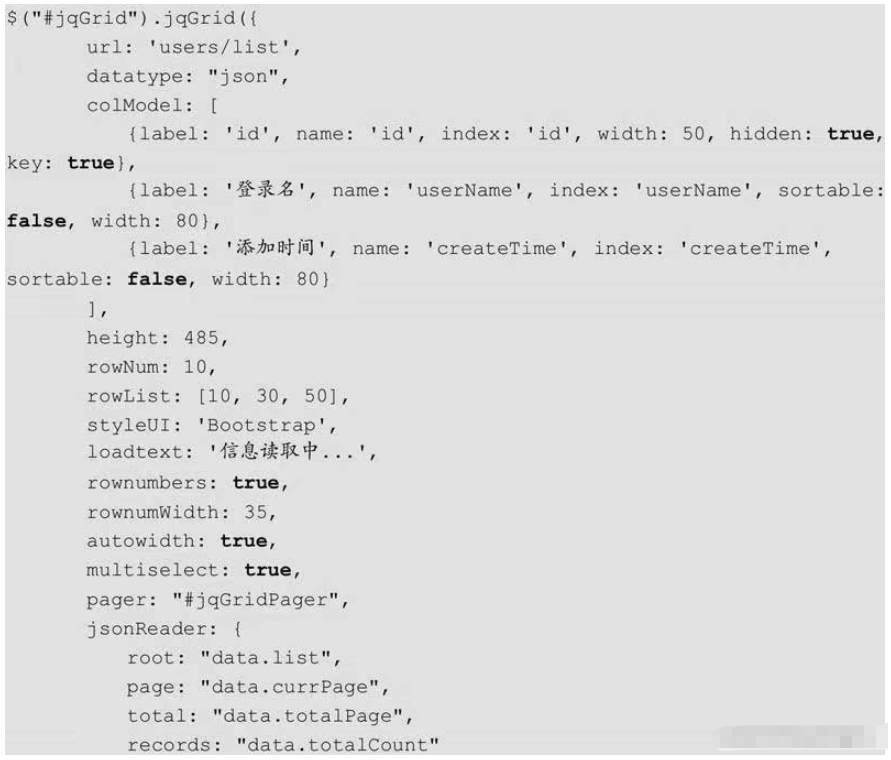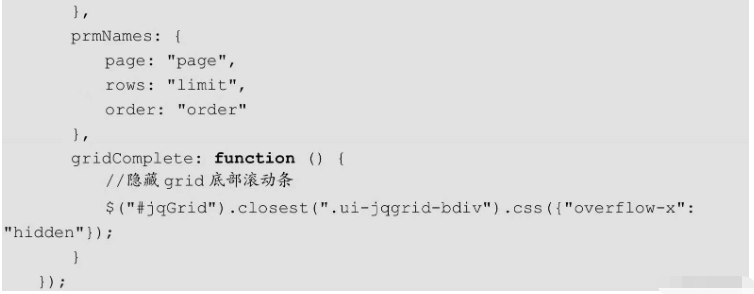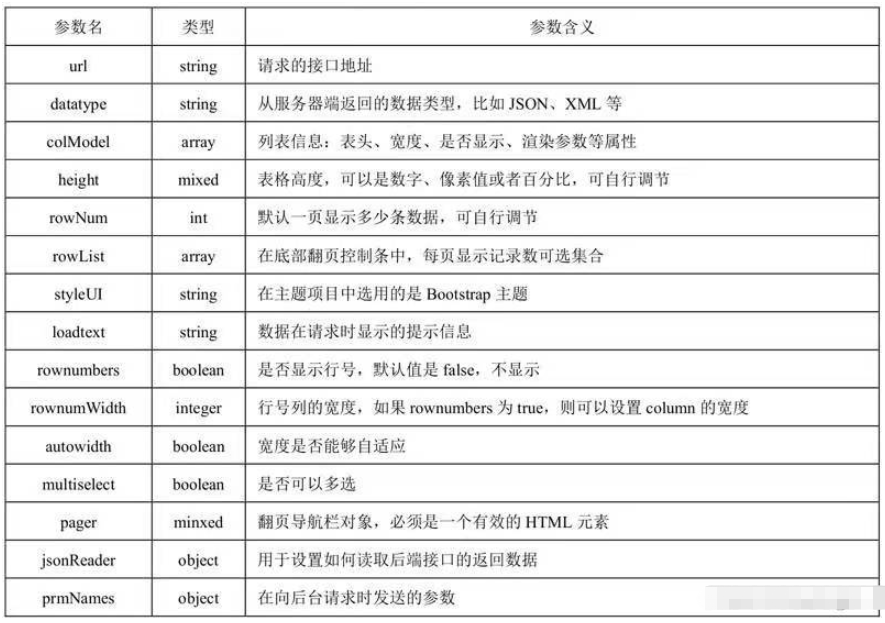жӮЁеҘҪпјҢзҷ»еҪ•еҗҺжүҚиғҪдёӢи®ўеҚ•е“ҰпјҒ
жӮЁеҘҪпјҢзҷ»еҪ•еҗҺжүҚиғҪдёӢи®ўеҚ•е“ҰпјҒ
иҝҷзҜҮвҖңspringbootеҲҶйЎөеҠҹиғҪжҖҺд№Ҳе®һзҺ°вҖқж–Үз« зҡ„зҹҘиҜҶзӮ№еӨ§йғЁеҲҶдәәйғҪдёҚеӨӘзҗҶи§ЈпјҢжүҖд»Ҙе°Ҹзј–з»ҷеӨ§е®¶жҖ»з»“дәҶд»ҘдёӢеҶ…е®№пјҢеҶ…е®№иҜҰз»ҶпјҢжӯҘйӘӨжё…жҷ°пјҢе…·жңүдёҖе®ҡзҡ„еҖҹйүҙд»·еҖјпјҢеёҢжңӣеӨ§е®¶йҳ…иҜ»е®ҢиҝҷзҜҮж–Үз« иғҪжңүжүҖ收иҺ·пјҢдёӢйқўжҲ‘们дёҖиө·жқҘзңӢзңӢиҝҷзҜҮвҖңspringbootеҲҶйЎөеҠҹиғҪжҖҺд№Ҳе®һзҺ°вҖқж–Үз« еҗ§гҖӮ
еҲҶйЎөеҠҹиғҪдҪңдёәеҗ„зұ»зҪ‘з«ҷе’Ңзі»з»ҹдёҚеҸҜжҲ–зјәзҡ„йғЁеҲҶпјҲдҫӢеҰӮзҷҫеәҰжҗңзҙўз»“жһңзҡ„еҲҶйЎөзӯүпјүпјҢеҪ“дёҖдёӘйЎөйқўж•°жҚ®йҮҸеӨ§зҡ„ж—¶еҖҷеҲҶйЎөдҪңз”Ёе°ұдҪ“зҺ°еҮәжқҘзҡ„пјҢе…¶дҪңз”Ёжңүд»ҘдёӢ5дёӘгҖӮ
пјҲ1пјүеҮҸе°‘зі»з»ҹиө„жәҗзҡ„ж¶ҲиҖ—
пјҲ2пјүжҸҗй«ҳж•°жҚ®еә“зҡ„жҹҘиҜўжҖ§иғҪ
пјҲ3пјүжҸҗеҚҮйЎөйқўзҡ„и®ҝй—®йҖҹеәҰ
пјҲ4пјүз¬ҰеҗҲз”ЁжҲ·зҡ„жөҸи§Ҳд№ жғҜ
пјҲ5пјүйҖӮй…ҚйЎөйқўзҡ„жҺ’зүҲ
з”ұдәҺйңҖиҰҒе®һзҺ°еҲҶйЎөеҠҹиғҪпјҢжүҖйңҖзҡ„ж•°жҚ®иҫғеӨҡ
DROP TABLE IF EXISTS tb_user; CREATE TABLE tb_user ( id int(11) NOT NULL AUTO_INCREMENT COMMENT 'дё»й”®id', name varchar(100) NOT NULL DEFAULT '' COMMENT 'зҷ»еҪ•еҗҚ', password varchar(100) NOT NULL DEFAULT '' COMMENT 'еҜҶз Ғ', PRIMARY KEY (id) USING BTREE ) ENGINE = InnoDB CHARACTER SET = utf8; insert into tb_user (id,name,password) value (1,'C','123456'), (2,'C++','123456'), (3,'Java','123456'), (4,'Python','123456'), (5,'R','123456'), (6,'C#','123456'); insert into tb_user (id,name,password) value (7,'test1','123456'); insert into tb_user (id,name,password) value (8,'test2','123456'); insert into tb_user (id,name,password) value (9,'test3','123456'); insert into tb_user (id,name,password) value (10,'test4','123456'); insert into tb_user (id,name,password) value (11,'test5','123456'); insert into tb_user (id,name,password) value (12,'test6','123456'); insert into tb_user (id,name,password) value (13,'test7','123456'); insert into tb_user (id,name,password) value (14,'test8','123456'); insert into tb_user (id,name,password) value (15,'test9','123456'); insert into tb_user (id,name,password) value (16,'test10','123456'); insert into tb_user (id,name,password) value (17,'test11','123456'); insert into tb_user (id,name,password) value (18,'test12','123456'); insert into tb_user (id,name,password) value (19,'test13','123456'); insert into tb_user (id,name,password) value (20,'test14','123456'); insert into tb_user (id,name,password) value (21,'test15','123456'); insert into tb_user (id,name,password) value (22,'test16','123456'); insert into tb_user (id,name,password) value (23,'test17','123456'); insert into tb_user (id,name,password) value (24,'test18','123456'); insert into tb_user (id,name,password) value (25,'test19','123456'); insert into tb_user (id,name,password) value (26,'test20','123456'); insert into tb_user (id,name,password) value (27,'test21','123456'); insert into tb_user (id,name,password) value (28,'test22','123456'); insert into tb_user (id,name,password) value (29,'test23','123456'); insert into tb_user (id,name,password) value (30,'test24','123456'); insert into tb_user (id,name,password) value (31,'test25','123456'); insert into tb_user (id,name,password) value (32,'test26','123456'); insert into tb_user (id,name,password) value (33,'test27','123456'); insert into tb_user (id,name,password) value (34,'test28','123456'); insert into tb_user (id,name,password) value (35,'test29','123456'); insert into tb_user (id,name,password) value (36,'test30','123456'); insert into tb_user (id,name,password) value (37,'test31','123456'); insert into tb_user (id,name,password) value (38,'test32','123456'); insert into tb_user (id,name,password) value (39,'test33','123456'); insert into tb_user (id,name,password) value (40,'test34','123456'); insert into tb_user (id,name,password) value (41,'test35','123456'); insert into tb_user (id,name,password) value (42,'test36','123456'); insert into tb_user (id,name,password) value (43,'test37','123456'); insert into tb_user (id,name,password) value (44,'test38','123456'); insert into tb_user (id,name,password) value (45,'test39','123456'); insert into tb_user (id,name,password) value (46,'test40','123456'); insert into tb_user (id,name,password) value (47,'test41','123456'); insert into tb_user (id,name,password) value (48,'test42','123456'); insert into tb_user (id,name,password) value (49,'test43','123456'); insert into tb_user (id,name,password) value (50,'test44','123456'); insert into tb_user (id,name,password) value (51,'test45','123456');
ж–°е»әдёҖдёӘutilеҢ…并еңЁеҢ…дёӯж–°е»әResultйҖҡз”Ёз»“жһңзұ»пјҢд»Јз ҒеҰӮдёӢпјҡ
package ltd.newbee.mall.entity;
public class User {
private Integer id;
private String name;
private String password;
public Integer getId() {
return id;
}
public void setId(Integer id) {
this.id = id;
}
public String getName() {
return name;
}
public void setName(String name) {
this.name = name;
}
public String getPassword() {
return password;
}
public void setPassword(String password) {
this.password = password;
}
}еҗҺз«ҜжҺҘеҸЈиҝ”еӣһзҡ„ж•°жҚ®дјҡж №жҚ®д»ҘдёҠж јејҸиҝӣиЎҢж•°жҚ®е°ҒиЈ…пјҢеҢ…жӢ¬дёҡеҠЎз ҒгҖҒиҝ”еӣһдҝЎжҒҜгҖҒе®һйҷ…зҡ„ж•°жҚ®з»“жһңгҖӮиҝҷдёӘж јејҸжҳҜејҖеҸ‘дәәе‘ҳиҮӘиЎҢи®ҫзҪ®зҡ„пјҢеҰӮжһңжңүе…¶д»–жӣҙеҘҪзҡ„ж–№жЎҲд№ҹеҸҜд»ҘиҝӣиЎҢйҖӮеҪ“зҡ„и°ғж•ҙгҖӮ
еңЁutilеҢ…дёӯж–°е»әPageResultйҖҡз”Ёз»“жһңзұ»пјҢд»Јз ҒеҰӮдёӢпјҡ
package ltd.newbee.mall.util;
import java.util.List;
/**
* еҲҶйЎөе·Ҙе…·зұ»
*/
public class PageResult {
//жҖ»и®°еҪ•ж•°
private int totalCount;
//жҜҸйЎөи®°еҪ•ж•°
private int pageSize;
//жҖ»йЎөж•°
private int totalPage;
//еҪ“еүҚйЎөж•°
private int currPage;
//еҲ—иЎЁж•°жҚ®
private List<?> list;
/**
*
* @param totalCount жҖ»и®°еҪ•ж•°
* @param pageSize жҜҸйЎөи®°еҪ•ж•°
* @param currPage еҪ“еүҚйЎөж•°
* @param list еҲ—иЎЁж•°жҚ®
*/
public PageResult(int totalCount, int pageSize, int currPage, List<?> list) {
this.totalCount = totalCount;
this.pageSize = pageSize;
this.currPage = currPage;
this.list = list;
this.totalPage = (int) Math.ceil((double) totalCount / pageSize);
}
public int getTotalCount() {
return totalCount;
}
public void setTotalCount(int totalCount) {
this.totalCount = totalCount;
}
public int getPageSize() {
return pageSize;
}
public void setPageSize(int pageSize) {
this.pageSize = pageSize;
}
public int getTotalPage() {
return totalPage;
}
public void setTotalPage(int totalPage) {
this.totalPage = totalPage;
}
public int getCurrPage() {
return currPage;
}
public void setCurrPage(int currPage) {
this.currPage = currPage;
}
public List<?> getList() {
return list;
}
public void setList(List<?> list) {
this.list = list;
}
}еңЁUserDaoжҺҘеҸЈдёӯж–°еўһдёӨдёӘж–№жі•findUsers()е’ҢgetTotalUser()пјҢд»Јз ҒеҰӮдёӢжүҖзӨәпјҡ
/** * иҝ”еӣһеҲҶйЎөж•°жҚ®еҲ—иЎЁ * * @param pageUtil * @return */ List<User> findUsers(PageQueryUtil pageUtil); /** * иҝ”еӣһж•°жҚ®жҖ»ж•° * * @param pageUtil * @return */ int getTotalUser(PageQueryUtil pageUtil);
еңЁUserMapper.xmlж–Ү件дёӯж–°еўһиҝҷдёӨдёӘж–№жі•зҡ„жҳ е°„иҜӯеҸҘпјҢд»Јз ҒеҰӮдёӢжүҖзӨәпјҡ
<!--еҲҶйЎө-->
<!--жҹҘиҜўз”ЁжҲ·еҲ—иЎЁ-->
<select id="findUsers" parameterType="Map" resultMap="UserResult">
select id,name,password from tb_user
order by id desc
<if test="start!=null and limit!=null">
limit #{start}.#{limit}
</if>
</select>
<!--жҹҘиҜўз”ЁжҲ·жҖ»ж•°-->
<select id="getTotalUser" parameterType="Map" resultType="int">
select count(*) from tb_user
</select>ж–°е»әserviceеҢ…пјҢ并新еўһдёҡеҠЎзұ»UserServiceпјҢд»Јз ҒеҰӮдёӢжүҖзӨәпјҡ
import ltd.newbee.mall.dao.UserDao;
import ltd.newbee.mall.entity.User;
import ltd.newbee.mall.util.PageResult;
import ltd.newbee.mall.util.PageQueryUtil;
import org.springframework.beans.factory.annotation.Autowired;
import org.springframework.stereotype.Service;
import java.util.List;
@Service
public class UserService {
@Autowired
private UserDao userDao;
public PageResult getUserPage(PageQueryUtil pageUtil){
//еҪ“еүҚйЎөйқўдёӯзҡ„ж•°жҚ®еҲ—иЎЁ
List<User> users = userDao.findUsers(pageUtil);
//ж•°жҚ®жҖ»жқЎж•°пјҢз”ЁдәҺи®Ўз®—еҲҶйЎөж•°жҚ®
int total = userDao.getTotalUser(pageUtil);
//еҲҶйЎөдҝЎжҒҜе°ҒиЈ…
PageResult pageResult = new PageResult(users,total,pageUtil.getLimit(),pageUtil.getPage());
return pageResult;
}
}йҰ–е…Ҳж №жҚ®еҪ“еүҚйЎөйқўе’ҢжҜҸйЎөжқЎж•°жҹҘиҜўеҪ“еүҚйЎөзҡ„ж•°жҚ®йӣҶеҗҲпјҢ然еҗҺи°ғз”Ёselect countпјҲ*пјүиҜӯеҸҘжҹҘиҜўж•°жҚ®зҡ„жҖ»жқЎж•°з”ЁдәҺи®Ўз®—еҲҶйЎөж•°жҚ®пјҢжңҖеҗҺе°ҶиҺ·еҸ–зҡ„ж•°жҚ®е°ҒиЈ…еҲ°PageResultеҜ№иұЎдёӯ并иҝ”еӣһз»ҷжҺ§еҲ¶еұӮгҖӮ
еңЁcontrollerеҢ…дёӯж–°е»әPageTestControllerзұ»пјҢз”ЁдәҺе®һзҺ°еҲҶйЎөиҜ·жұӮзҡ„еӨ„зҗҶ并иҝ”еӣһжҹҘиҜўз»“жһңпјҢд»Јз ҒеҰӮдёӢжүҖзӨәпјҡ
@RestController
@RequestMapping("users")
public class PageTestController {
@Autowired
private UserService userService;
//еҲҶйЎөеҠҹиғҪжөӢиҜ•
@RequestMapping(value = "/list",method = RequestMethod.GET)
public Result list(@RequestParam Map<String,Object> params){
Result result = new Result();
if (StringUtils.isEmpty(params.get("page"))||StringUtils.isEmpty(params.get("limit"))){
//иҝ”еӣһй”ҷиҜҜз Ғ
result.setResultCode(500);
//й”ҷиҜҜдҝЎжҒҜ
result.setMessage("еҸӮж•°ејӮеёёпјҒ");
return result;
}
//е°ҒиЈ…жҹҘиҜўеҸӮж•°
PageQueryUtil queryParamList = new PageQueryUtil(params);
//жҹҘиҜўе№¶е°ҒиЈ…еҲҶйЎөз»“жһңйӣҶ
PageResult userPage = userService.getUserPage(queryParamList);
//иҝ”еӣһжҲҗеҠҹз Ғ
result.setResultCode(200);
result.setMessage("жҹҘиҜўжҲҗеҠҹ");
//иҝ”еӣһеҲҶйЎөж•°жҚ®
result.setData(userPage);
return result;
}
}еҲҶйЎөеҠҹиғҪзҡ„дәӨдә’жөҒзЁӢпјҡеүҚз«Ҝе°ҶжүҖйңҖйЎөз Ғе’ҢжқЎж•°еҸӮж•°дј иҫ“з»ҷеҗҺз«ҜпјҢеҗҺз«ҜеңЁжҺҘ收еҲҶйЎөиҜ·жұӮеҗҺеҜ№еҲҶйЎөеҸӮж•°иҝӣиЎҢи®Ўз®—пјҢ并еҲ©з”ЁMySQLзҡ„limitе…ій”®еӯ—жҹҘиҜўеҜ№еә”зҡ„и®°еҪ•пјҢеңЁжҹҘиҜўз»“жһңиў«е°ҒиЈ…еҗҺиҝ”еӣһз»ҷеүҚз«ҜгҖӮеңЁTestUserControlerзұ»дёҠдҪҝз”Ёзҡ„жҳҜ@RestControllerжіЁи§ЈпјҢиҜҘжіЁи§ЈзӣёеҪ“дәҺ@ResponseBodyпјӢ@Controllerзҡ„з»„еҗҲжіЁи§ЈгҖӮ
jqGridжҳҜдёҖдёӘз”ЁжқҘжҳҫзӨәзҪ‘ж јж•°жҚ®зҡ„jQueryжҸ’件гҖӮејҖеҸ‘дәәе‘ҳйҖҡиҝҮдҪҝз”ЁjqGridеҸҜд»ҘиҪ»жқҫе®һзҺ°еүҚз«ҜйЎөйқўдёҺеҗҺеҸ°ж•°жҚ®зҡ„AjaxејӮжӯҘйҖҡдҝЎе№¶е®һзҺ°еҲҶйЎөеҠҹиғҪгҖӮеҗҢж—¶пјҢjqGridжҳҜдёҖж¬ҫд»Јз ҒејҖжәҗзҡ„еҲҶйЎөжҸ’件пјҢжәҗз Ғд№ҹдёҖзӣҙеӨ„дәҺиҝӯд»Јжӣҙж–°зҡ„зҠ¶жҖҒдёӯгҖӮ
дёӢиҪҪең°еқҖпјҡjqGrid
дёӢиҪҪjqGridеҗҺи§ЈеҺӢж–Ү件пјҢе°Ҷи§ЈеҺӢзҡ„ж–Ү件зӣҙжҺҘжӢ–иҝӣйЎ№зӣ®зҡ„staticзӣ®еҪ•дёӢ

д»ҘдёӢжҳҜjqGridе®һзҺ°еҲҶйЎөзҡ„жӯҘйӘӨпјҡ
йҰ–е…ҲпјҢеңЁеүҚз«ҜйЎөйқўд»Јз Ғдёӯеј•е…ҘjqGridеҲҶйЎөжҸ’件жүҖйңҖзҡ„жәҗж–Ү件пјҢд»Јз ҒеҰӮдёӢжүҖзӨәпјҡ
<link href="plugins/jqgrid-5.8.2/ui.jqgrid-bootstrap4.css" rel="external nofollow" rel="stylesheet"/> <!--jqGridдҫқиө–jQuery,еӣ жӯӨйңҖиҰҒе…Ҳеј•е…Ҙjquery.min.jsж–Ү件пјҢдёӢж–№ең°еқҖдёәеӯ—иҠӮи·іеҠЁжҸҗдҫӣзҡ„cdnең°еқҖ--> <script src="http://s3.pstatp.com/cdn/expire-1-M/jquery/3.3.1/jquery.min.js"></script> <!--grid.locale-cn.jsдёәеӣҪйҷ…еҢ–жүҖйңҖзҡ„ж–Ү件пјҢ-cnиЎЁзӨәдёӯж–Ү--> <script src="plugins/jqgrid-5.8.2/grid.locale-cn.js"></script> <script src="plugins/jqgrid-5.8.2/jquery.jqGrid.min.js"></script>
е…¶ж¬ЎпјҢеңЁйЎөйқўдёӯйңҖиҰҒеұ•зӨәеҲҶйЎөж•°жҚ®зҡ„еҢәеҹҹж·»еҠ з”ЁдәҺjqGridеҲқе§ӢеҢ–зҡ„д»Јз Ғпјҡ
<!--jqGridеҝ…иҰҒDOMпјҢз”ЁдәҺеҲӣе»әиЎЁж јеұ•зӨәеҲ—иЎЁж•°жҚ®--> <table id="jqGrid" class="table table-bordered"></table> <!--jqGridеҝ…иҰҒDOMпјҢеҲҶйЎөдҝЎжҒҜеҢәеҹҹ--> <div id="jqGridPager"></div>
жңҖеҗҺпјҢи°ғз”ЁjqGridеҲҶйЎөжҸ’件зҡ„jqGrid()ж–№жі•жёІжҹ“еҲҶйЎөеұ•зӨәеҢәеҹҹпјҢд»Јз ҒеҰӮдёӢжүҖзӨәпјҡ


jqGrid()ж–№жі•дёӯзҡ„еҸӮж•°еҸҠеҗ«д№үеҰӮеӣҫжүҖзӨәгҖӮ

jqGridеүҚз«ҜйЎөйқўжөӢиҜ•пјҡ
еңЁresources/staticзӣ®дёӯж–°е»әjqgrid-page-test.htmlж–Ү件пјҢд»Јз ҒеҰӮдёӢжүҖзӨәпјҡ
<!DOCTYPE html> <html> <head> <meta charset="UTF-8"> <title>jqGridеҲҶйЎөжөӢиҜ•</title> <!--еј•е…Ҙbootstrapж ·ејҸж–Ү件--> <link rel="stylesheet" href="/static/bootstrap-5.3.0-alpha3-dist/css/bootstrap.css" rel="external nofollow" /> <link href="jqGrid-5.8.2/css/ui.jqgrid-bootstrap4.css" rel="external nofollow" rel="stylesheet"/> </head> <body> <div > <!--ж•°жҚ®еұ•зӨәеҲ—иЎЁпјҢidдёәjqGrid--> <table id="jqGrid" class="table table-bordered"></table> <!--еҲҶйЎөжҢүй’®еұ•зӨәеҢә--> <div id="jqGridPager"></div> </div> </body> <!--jqGridдҫқиө–jQuery,еӣ жӯӨйңҖиҰҒе…Ҳеј•е…Ҙjquery.min.jsж–Ү件пјҢдёӢж–№ең°еқҖдёәеӯ—иҠӮи·іеҠЁжҸҗдҫӣзҡ„cdnең°еқҖ--> <script src="http://s3.pstatp.com/cdn/expire-1-M/jquery/3.3.1/jquery.min.js"></script> <!--grid.locale-cn.jsдёәеӣҪйҷ…еҢ–жүҖйңҖзҡ„ж–Ү件пјҢ-cnиЎЁзӨәдёӯж–Ү--> <script src="plugins/jqgrid-5.8.2/grid.locale-cn.js"></script> <script src="plugins/jqgrid-5.8.2/jquery.jqGrid.min.js"></script> <script src="jqgrid-page-test.js"></script> </html>
jqGridеҲқе§ӢеҢ–
еңЁresources/staticзӣ®еҪ•дёӢж–°е»әjqgrid-page-test.jsж–Ү件пјҢд»Јз ҒеҰӮдёӢжүҖзӨәпјҡ
$(function () {
$("#jqGrid").jqGrid({
url: 'users/list',
datatype: "json",
colModel: [
{label: 'id',name: 'id', index: 'id', width: 50, hidden: true,key:true},
{label: 'зҷ»еҪ•еҗҚ',name: 'name',index: 'name', sortable: false, width: 80},
{label: 'еҜҶз Ғеӯ—ж®ө',name: 'password',index: 'password', sortable: false, width: 80}
],
height: 485,
rowNum: 10,
rowList: [10,30,50],
styleUI: 'Bootstrap',
loadtext: 'дҝЎжҒҜиҜ»еҸ–дёӯ...',
rownumbers: true,
rownumWidth: 35,
autowidth: true,
multiselect: true,
pager: "#jqGridPager",
jsonReader:{
root: "data.list",
page: "data.currPage",
total: "data.totalCount"
},
prmNames:{
page: "page",
rows: "limit",
order: "order"
},
gridComplete: function () {
//йҡҗи—Ҹgridеә•йғЁж»ҡеҠЁжқЎ
$("#jqGrid").closest(".ui-jqgrid-bdiv").css({"overflow-x": "hidden"});
}
});
$(window).resize(function () {
$("jqGrid").setGridWidth($(".card-body").width());
});
});д»ҘдёҠе°ұжҳҜе…ідәҺвҖңspringbootеҲҶйЎөеҠҹиғҪжҖҺд№Ҳе®һзҺ°вҖқиҝҷзҜҮж–Үз« зҡ„еҶ…е®№пјҢзӣёдҝЎеӨ§е®¶йғҪжңүдәҶдёҖе®ҡзҡ„дәҶи§ЈпјҢеёҢжңӣе°Ҹзј–еҲҶдә«зҡ„еҶ…е®№еҜ№еӨ§е®¶жңүеё®еҠ©пјҢиӢҘжғідәҶи§ЈжӣҙеӨҡзӣёе…ізҡ„зҹҘиҜҶеҶ…е®№пјҢиҜ·е…іжіЁдәҝйҖҹдә‘иЎҢдёҡиө„и®Ҝйў‘йҒ“гҖӮ
е…ҚиҙЈеЈ°жҳҺпјҡжң¬з«ҷеҸ‘еёғзҡ„еҶ…е®№пјҲеӣҫзүҮгҖҒи§Ҷйў‘е’Ңж–Үеӯ—пјүд»ҘеҺҹеҲӣгҖҒиҪ¬иҪҪе’ҢеҲҶдә«дёәдё»пјҢж–Үз« и§ӮзӮ№дёҚд»ЈиЎЁжң¬зҪ‘з«ҷз«ӢеңәпјҢеҰӮжһңж¶үеҸҠдҫөжқғиҜ·иҒ”зі»з«ҷй•ҝйӮ®з®ұпјҡis@yisu.comиҝӣиЎҢдёҫжҠҘпјҢ并жҸҗдҫӣзӣёе…іиҜҒжҚ®пјҢдёҖз»ҸжҹҘе®һпјҢе°Ҷз«ӢеҲ»еҲ йҷӨж¶үе«ҢдҫөжқғеҶ…е®№гҖӮ